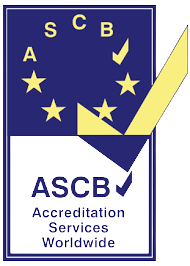Table of Content
- Introduction
- Want to skip the post?
- 10 Top Talent Management Trends To Follow In 2023:
- 1. Embracing Remote Work and Hybrid Models
- 2. Prioritising Employee Well-being
- 3. Leveraging Data Analytics for Talent Management
- 4. Upskilling and Reskilling Initiatives
- 5. Diversity, Equity, and Inclusion (DEI) Initiatives
- 6. Flexible Work Arrangements
- 7. Continuous Performance Management
- 8. Artificial Intelligence in Talent Management
- 9. Employee Experience as a Differentiator
- 10. Building a Talent Brand
- The Bottom Line
- FAQs:
Introduction
As businesses evolve, so does the landscape of talent management. In this fast-paced world, organisations must stay updated with the latest trends to effectively attract, develop, and retain top talent. This article will explore the ten top talent management trends you should follow this year. From embracing remote work to promoting a diverse and inclusive workplace, these trends are essential for achieving talent acquisition and retention success.
Want to skip the post?

10 Top Talent Management Trends To Follow In 2023:
1. Embracing Remote Work and Hybrid Models
The COVID-19 pandemic reshaped how we work, leading to the widespread adoption of remote work. Companies have realised the benefits of remote work in increased productivity and reduced overhead costs, especially if they implemented smart tools like uKnowva HRMS. Organisations are expected to continue embracing remote work or implementing hybrid work models as the world moves towards recovery. This trend offers employees greater flexibility, allowing them to maintain a work-life balance while remaining engaged and productive.
2. Prioritising Employee Well-being
Employee well-being has become a top priority for organisations. The pandemic highlighted the importance of mental and physical health, leading companies to implement well-being programs. Providing resources for stress management, mental health support, and promoting work-life balance are critical aspects of this trend when using an intelligent HRMS software in India. Organisations can create a positive and supportive work environment by prioritising employee well-being.
3. Leveraging Data Analytics for Talent Management
In the digital age, data analytics plays a significant role in various business processes, including talent management. organisations are increasingly leveraging data to make informed decisions about their workforce. Data analytics helps HR professionals streamline their talent management strategies, from predicting attrition rates to identifying skill gaps. This trend ensures talent decisions are based on objective insights rather than subjective judgments.
4. Upskilling and Reskilling Initiatives
In a rapidly changing job market, upskilling and reskilling are essential to ensure employees remain relevant and competent. Companies are investing in training programs to enhance their workforce's skills and prepare them for future challenges. Upskilling empowers employees to take on new responsibilities, while reskilling helps them transition to different organisational roles. By nurturing a culture of continuous learning, businesses can stay competitive and adaptable.
5. Diversity, Equity, and Inclusion (DEI) Initiatives
Diversity, Equity, and Inclusion (DEI) initiatives are gaining traction in the corporate world. organisations recognise the value of diverse teams in driving innovation and achieving better business outcomes. By fostering an inclusive workplace, companies can attract a broader talent pool and create a supportive environment for all employees. Implementing DEI initiatives enhances the organisation's reputation and positively impacts its bottom line.
6. Flexible Work Arrangements
Flexibility in work arrangements has become crucial in attracting and retaining top talent. Companies are offering flexible work hours, compressed workweeks, or even unlimited paid time off to accommodate individual preferences. This trend acknowledges the diverse needs of employees and promotes healthy work-life integration.
7. Continuous Performance Management
Traditional annual performance reviews are gradually giving way to continuous performance management. This trend involves regular feedback and coaching, enabling employees to continuously improve their skills and performance. Continuous performance management fosters a culture of open communication and empowers employees to take ownership of their development.
8. Artificial Intelligence in Talent Management
Artificial Intelligence (AI) transforms various aspects of talent management, from recruitment to employee engagement. AI-powered tools can analyse candidate data, assess skills, and predict employee attrition. Chatbots and virtual assistants enhance the employee experience by providing instant support and answers to common queries. Integrating AI into talent management processes streamlines operations and enhances efficiency.
9. Employee Experience as a Differentiator
Employee experience has emerged as a key differentiator in attracting and retaining talent. Companies are focusing on creating a positive employee journey from onboarding to offboarding. This trend encompasses various elements, including office culture, opportunities for growth, and recognition programs. Organisations prioritising employee experience have motivated, loyal, and high-performing employees.
10. Building a Talent Brand
A strong talent brand is vital for attracting top talent in a competitive job market. This trend involves promoting the organisation's values, culture, and work environment to potential candidates. Companies are utilising social media, employer branding campaigns, and employee testimonials to showcase their unique identity as an employer. A compelling talent brand can significantly impact the quality and quantity of job applicants.
The Bottom Line
Top talent management trends are evolving rapidly, and staying updated with all of those is important for organisations to remain competitive. From embracing remote work to prioritising employee well-being, these trends are instrumental in attracting, developing, and retaining top talent. By leveraging data analytics, encouraging the development of a diverse and inclusive workplace, and promoting upskilling initiatives, businesses can create a strong employer brand and ensure their success in the ever-changing job market. Remember, adopting these trends will not only benefit the organisation but also create a positive impact on employees' lives.
So, are you ready to take your talent management strategies to the next level? Embrace these ten top talent management trends and watch your organisation thrive in the dynamic talent acquisition and retention world.
Contact us for more information.
FAQs:
Q: How do remote work and hybrid models benefit organisations?
A: Remote work and hybrid models offer increased productivity, reduced overhead costs, and greater employee flexibility, leading to better work-life balance.
Q: How can data analytics improve talent management?
A: Data analytics provides objective insights, helping HR professionals make informed decisions about workforce planning and development.
Q: What is continuous performance management?
A: Continuous performance management involves regular feedback and coaching, encouraging employees to improve their skills and performance consistently with 360-degree and future-forward performance management modules with integrated tools like uKnowva HRMS.
Q: Why is employee experience crucial for organisations?
A: Employee experience impacts employee motivation, loyalty, and performance, making it a key factor for attracting and retaining employer's desired talent.
Q: How can organisations build a strong talent brand?
A: organisations can build a strong talent brand by promoting their values, culture, and work environment through various channels, such as social intranet and employer branding campaigns.












